Enhancing clinical teaching competencies for practical instructors in nursing education
With the aim of enhancing clinical teaching competencies among nursing instructors - and thereby improving students’ learning outcomes - the Faculty of Nursing at Van Lang University held a specialized seminar titled “Enhancing clinical teaching competencies for practical instructors in nursing education” on April 25, 2025. The event served as a valuable platform for lecturers and healthcare professionals to discuss effective methods for assessing students’ competencies in clinical settings and to explore optimal solutions for improving the quality of hands-on clinical training.
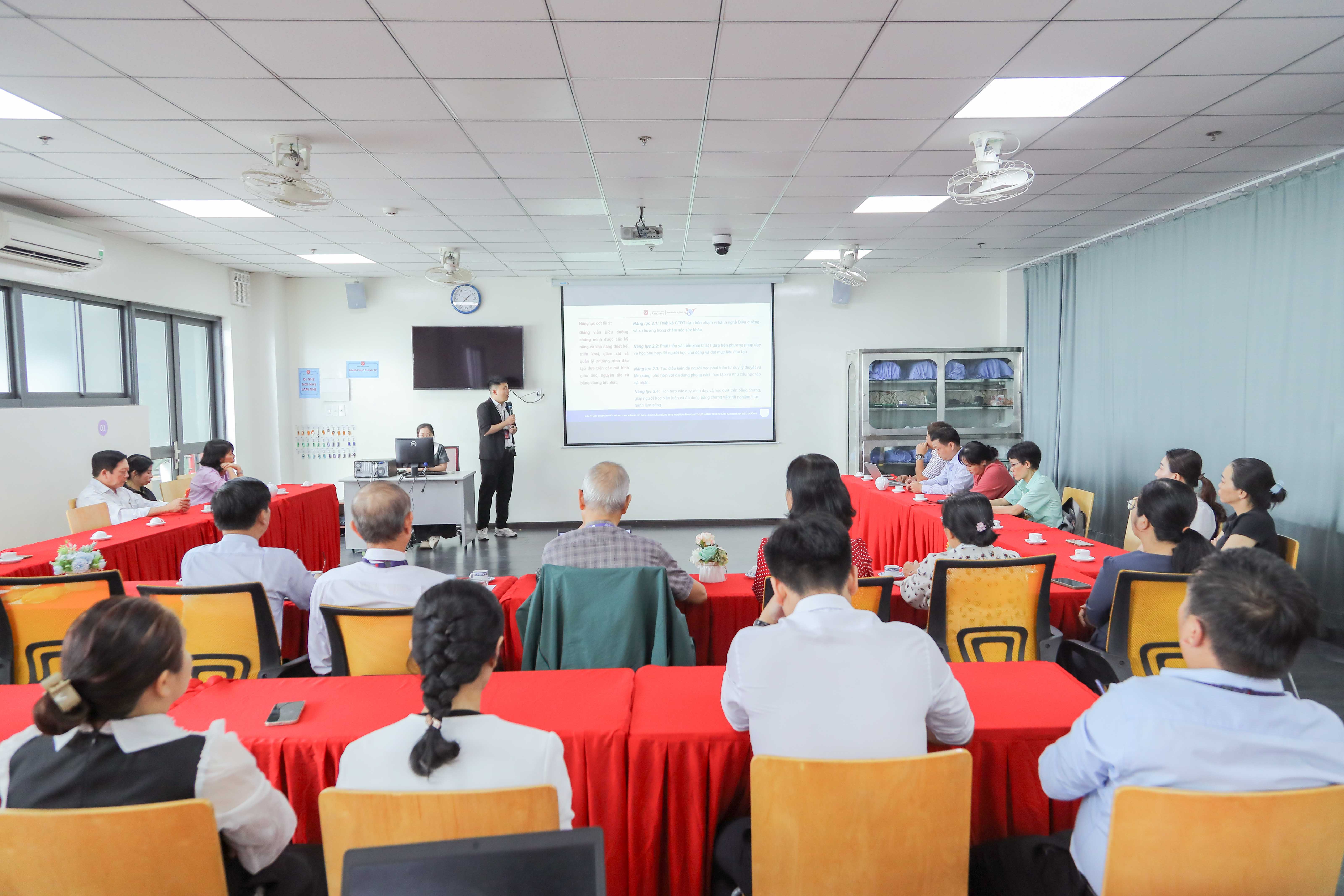
At the opening of the workshop with the first topic, “Core Competencies of Nurse Educators (according to WHO),” Mr. Vu Long, Lecturer at the Faculty of Nursing, Van Lang University, presented in a systematic manner the 8 key competencies based on the standards of the World Health Organization (WHO). These 8 core competencies are divided into 37 specific skills across 8 important areas in nursing education, including: Theories and principles in Adult Education; Curriculum development and implementation; Nursing practice; Research and evidence; Communication, coordination, and collaboration; Ethical, legal principles, and professionalism; Monitoring and evaluation; Management, leadership, and advocacy.
This topic not only provides a detailed description of the essential competencies that every nurse educator needs to acquire in the process of training students but also offers clear guidance for teaching activities at the university to ensure the quality of education, improve nursing care, and enhance the quality of healthcare services.
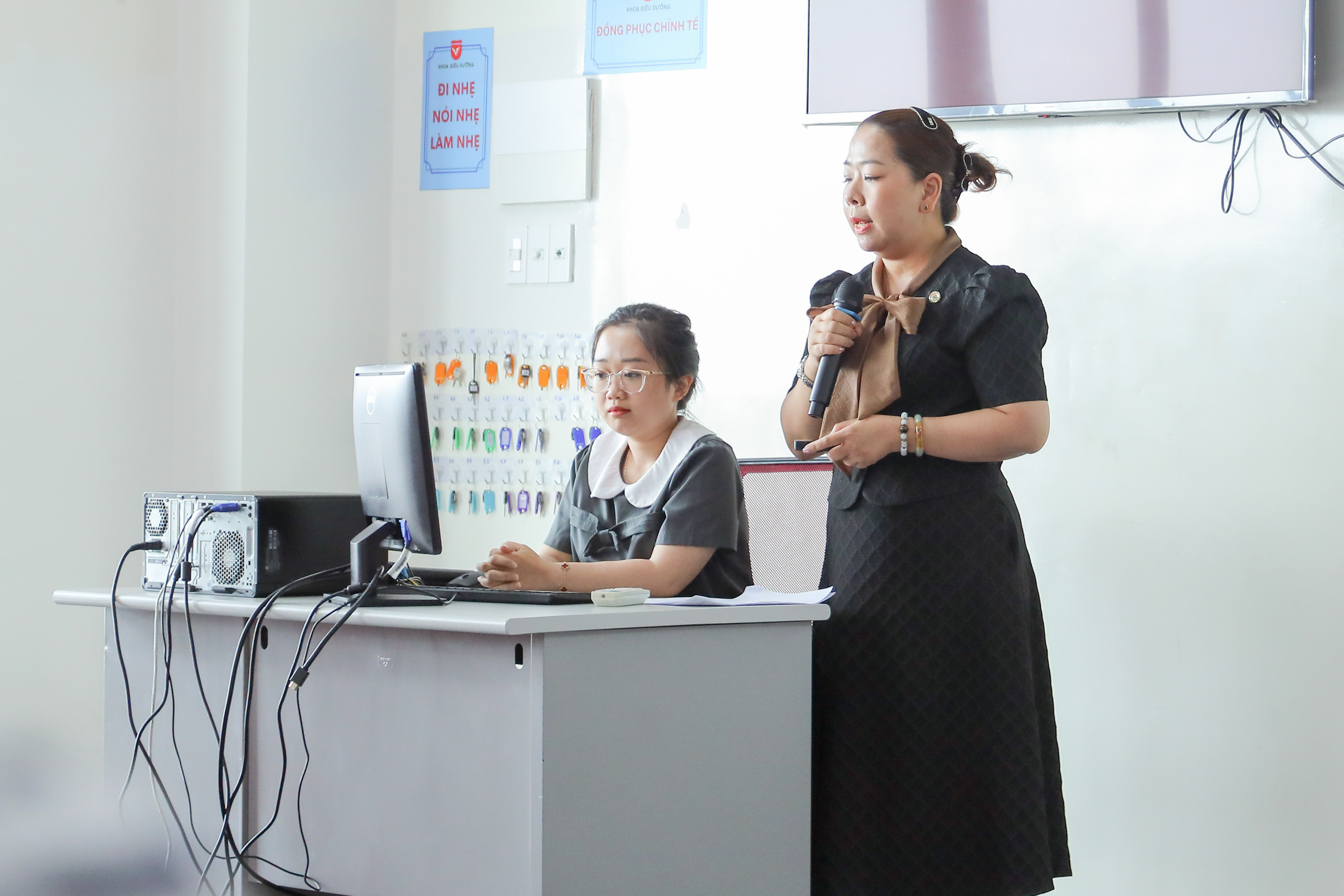
In the session "Clinical Practice Teaching and Guidance for Nurses in Hospitals," Ms. CKII. Nguyen Thi Tien, Head of the Nursing Department at Thong Nhat Hospital, stated that clinical teaching and learning are currently very challenging, placing pressure not only on educators but also on hospital staff. She highlighted several barriers in clinical teaching and learning, including the overload of students at patient bedsides, the lack of facilities and equipment, the lack of coordination between patients, the teaching hospital, and hospital staff, as well as the impact of socio-cultural and economic factors.
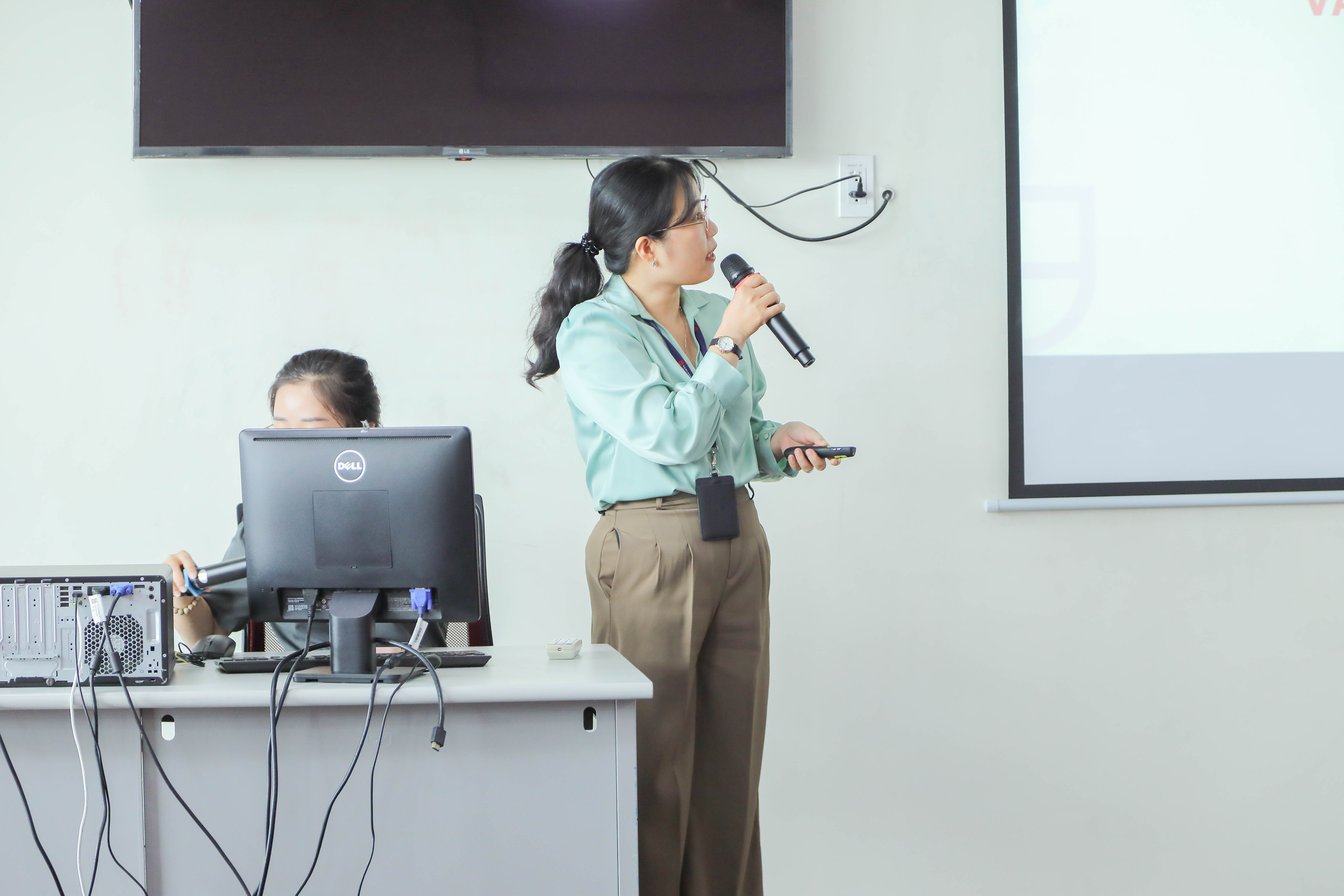
The third session, presented by Ms. Pham Nguyen Hong Phuc, Lecturer at the Faculty of Nursing, Van Lang University, delved into the method of assessing student learning outcomes based on the Course Learning Outcome (CLO) descriptor, distributed across three criteria: knowledge, skills, and levels of autonomy and responsibility. At the same time, she introduced practical guidelines for clinical practice, including: the hospital practice schedule, the hospital practice diary, nursing procedures, daily care plans, midterm exams, and hospital internship reports.
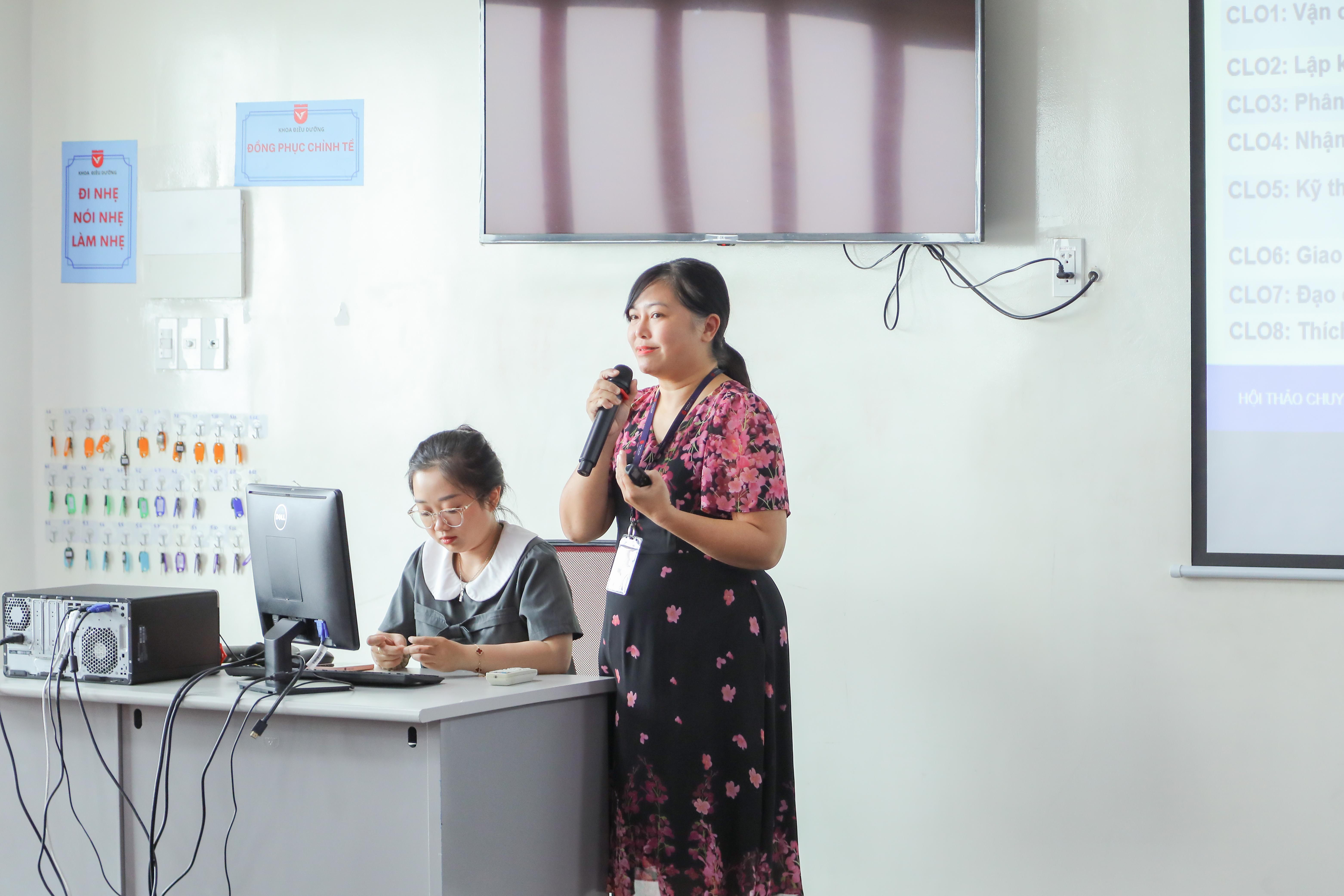
Ms. Dang My Hanh, a lecturer at the Department of Nursing, Van Lang University, continued the workshop with the fourth session titled "Assessing Self-Learning of Nursing Students at Hospitals." She shared three methods for assessing students' self-learning through direct observation, evaluation of learning outcomes, and feedback from instructors and nursing mentors. Additionally, Ms. Dang My Hanh introduced several tools, including: the hospital practice journal, daily care plan, internship report, shift handover checklist at the bedside, and especially short writing assignments, which will support the assessment of self-learning for students during their study and practice at the hospital.
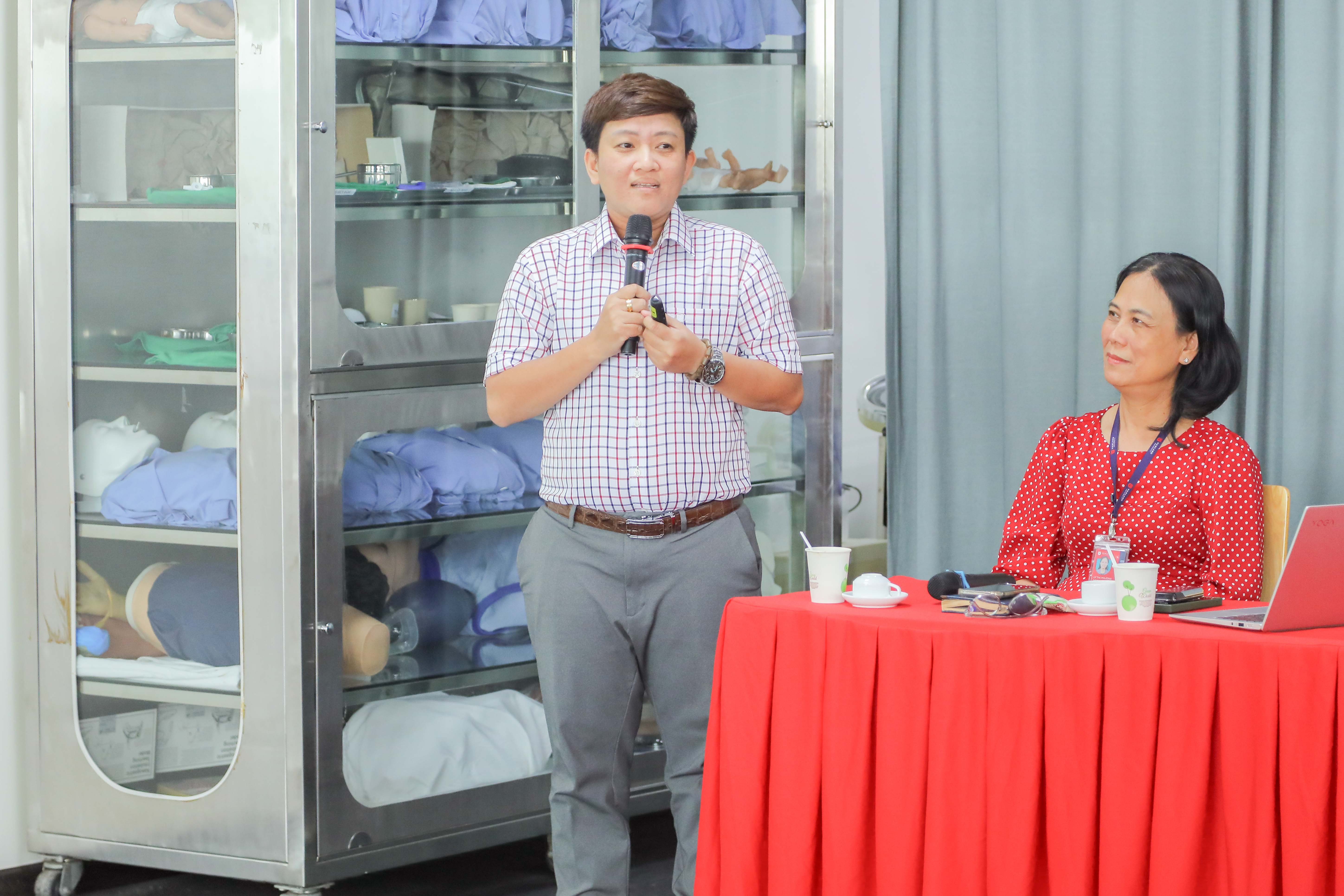
In the final session of the workshop, Mr. Nguyen Hoai Minh Chau, a representative from the Nursing Department of Gia Dinh People's Hospital, emphasized the important role of patients in the clinical practice process. Additionally, Mr. Minh Chau pointed out the advantages and challenges related to the environment, patients, measurement methods, skills, and students in guiding clinical practice, and suggested appropriate solutions to enhance the effectiveness of training.
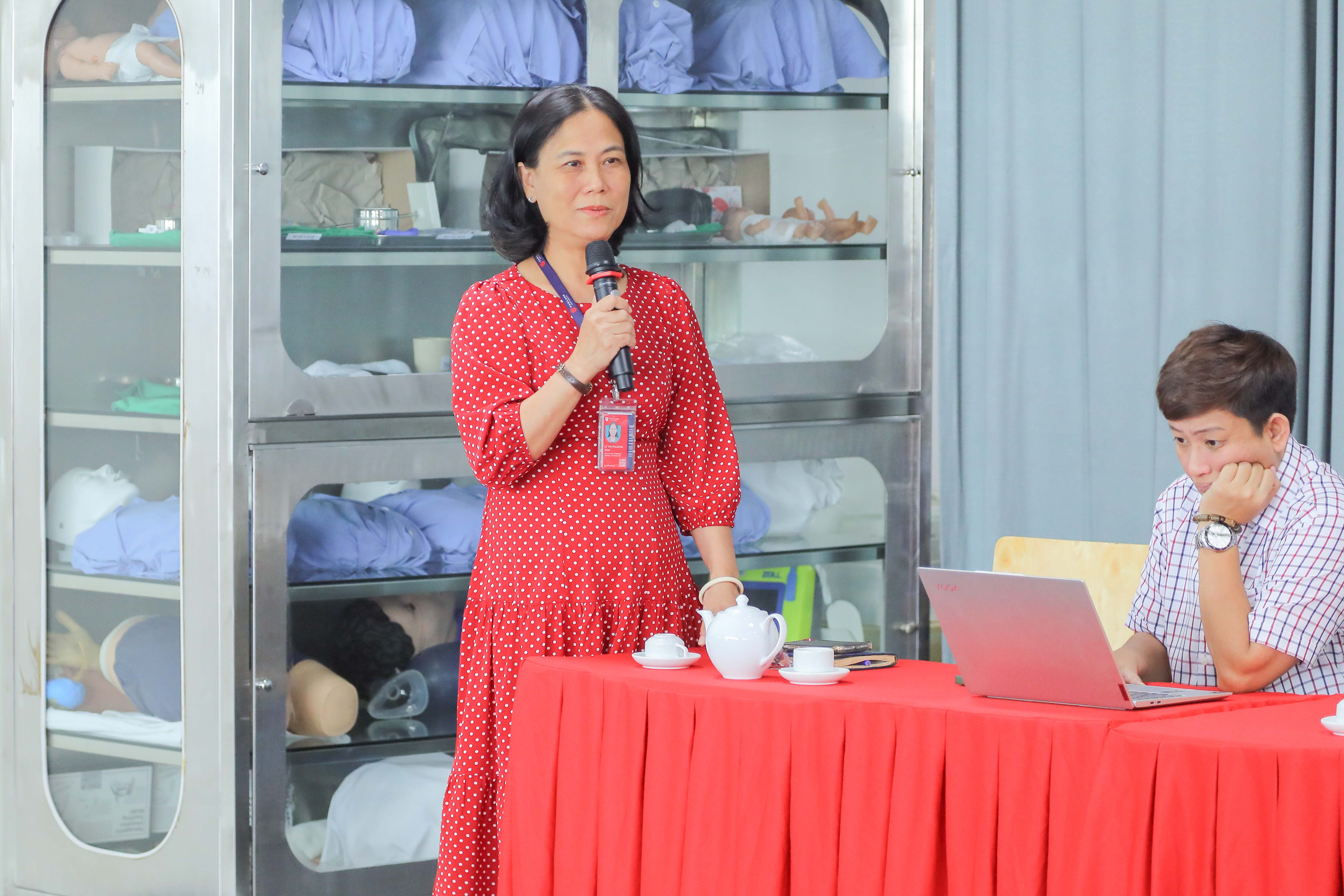
After the presentations, the workshop proceeded with a lively discussion, with valuable input from experienced faculty members and medical staff from various hospitals. Dr. Ly Thi Phuong Hoa, Head of the Nursing Department at Van Lang University, sincerely thanked all the faculty members and medical professionals for their positive contributions to the university, which directly enhanced the quality of training for the future nursing workforce. Dr. Phuong Hoa emphasized the department's focus on prioritizing quality over quantity in human resource training. She also expressed hope that with the continued collaboration and efforts of the faculty and hospital units, nursing education would continue to grow robustly, contributing to the improvement of healthcare services in the city and nationwide.
The thematic workshop concluded successfully, providing faculty members and healthcare experts with new knowledge and perspectives, aiming to train nursing graduates with solid expertise and strong medical ethics. The event clearly demonstrated Van Lang University's pioneering role in training high-quality healthcare human resources, meeting the development needs of society and the healthcare sector in Vietnam.
News: Anh Hong
Photos: Hoa Huan
Tags
Submit failed
